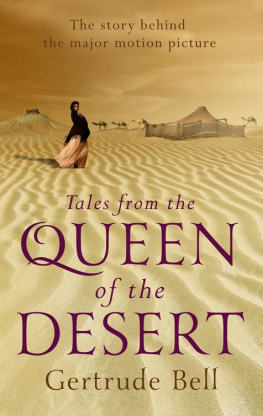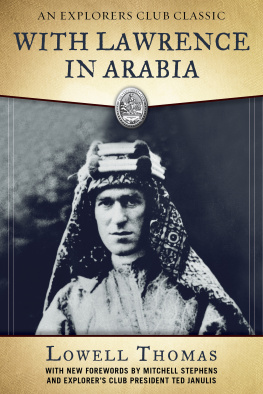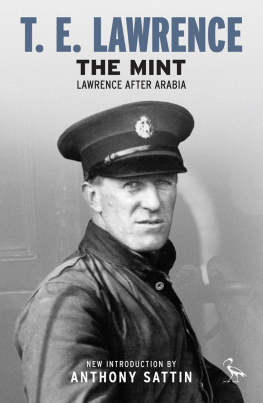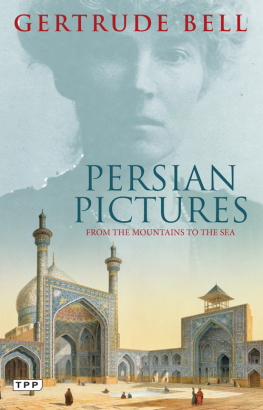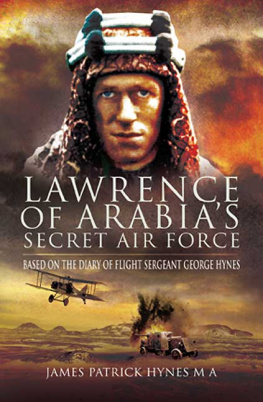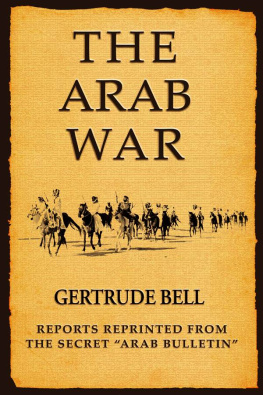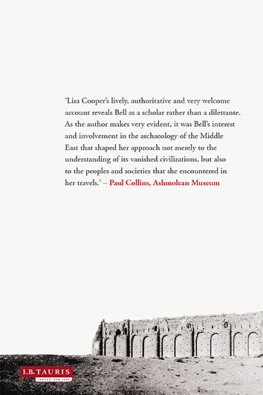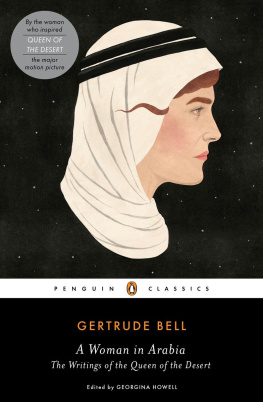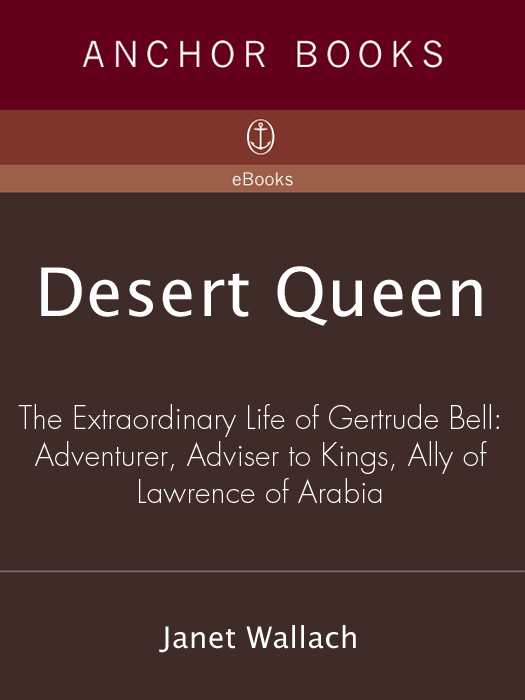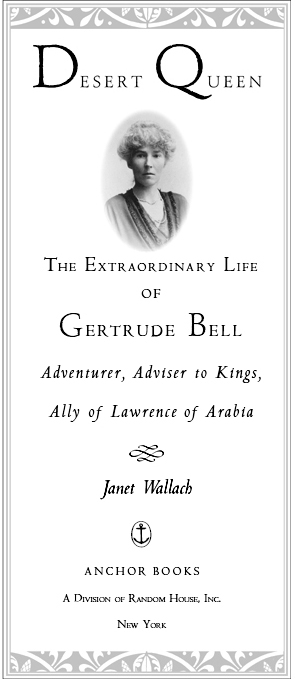B Y J ANET W ALLACH
Seraglio
Chanel: Her Style and Her Life
Desert Queen
Arafat: In the Eye of the Beholder
( WITH J OHN W ALLACH )
The New Palestinians
( WITH J OHN W ALLACH )
Still Small Voices:
The Real Heroes of the Arab-Israeli Conflict
( WITH J OHN W ALLACH )
Anchor Books Editions, July 1999, 2005
Copyright1996, 2005 by Janet Wallach
All rights reserved under International and Pan-American Copyright Conventions. Published in the United States by Anchor Books, a division of Random House, Inc., New York, and simultaneously in Canada by Random House of Canada Limited, Toronto. Originally published in hardcover in the United States by Nan A. Talese, an imprint of Doubleday, a division of Random House, Inc., New York, in 1996.
Anchor Books and colophon are registered trademarks of Random House, Inc.
Library of Congress Cataloging-in-Publication Data
Wallach, Janet.
Desert queen : the extraordinary life of Gertrude Bell, adventurer, adviser to kings, ally of Lawrence of Arabia / Janet Wallach. 1st Anchor Books ed.
p. cm.
Originally published: New York : Doubleday, 1996.
1. Bell, Gertrude Lowthian 18681926. 2. Women OrientalistsBiography. 3. Colonial administratorsGreat Britain Biography. 4. Colonial administratorsMiddle East Biography. I. Title.
DS61.7.B37W35 1999
956.02092dc21
[B] 99-24297
eISBN: 978-0-307-74436-4
www.anchorbooks.com
v3.1
To John, David and Michael,
who surround me with love
Contents

Part I
A Victorian
Part II
The Khatun
Acknowledgments

G ertrude Bell first came to my attention more than twenty years ago when, reading one of her books on the Middle East, I was struck by the courage of this bold Victorian woman. As I was about to travel to that part of the world for the first time, any fears that I had were diminished; indeed, my curiosity was piqued by her descriptions of journeying alone in the early 1900s, surrounded only by Arab men, speaking almost no English, sleeping in tents, riding camel or horse through dangerous regions, risking robbery and even death. I put the book back on the shelf, but the spirit of that intrepid traveler stayed with me.
It wasnt until the Gulf War in 1991 that references to Gertrude Bell popped up in newspapers, books and periodicals. Seeing her name reminded me of her book and my admiration for her. Learning of her importance to the modern Middle East, and in particular her crucial role in Iraq, she seemed to me an ideal subject for a biography. Little did I know just how marvelous a subject she would be.
Gertrude Bell was keenly aware of the importance of her work, often reminding her parents that her letters were a record of history. Thousands of those letters and diary entries are now preserved in the Robinson Library of the University of Newcastle, where I did much of my research. I have tried to be as true to them as possible; where I used conversation and dialogue in Desert Queen, the quotes were taken directly from that material or from the letters and memoirs of Gertrude Bells family, friends and colleagues. Any changes in spelling, particularly of Arabic words, were done to make the book more unified and the reading a little easier.
One of the bonuses of writing about Gertrude Bell was the opportunity to travel in her footsteps. I spent time with the Bedouin in the desert and with archaeologists, diplomats, writers and historians in England, Cairo, Damascus, Jerusalem, Amman and, most intriguing of all, Baghdad. I spoke to dozens of people who had heard about her from family and friends and to at least a dozen people who had actually known her themselves (including one who claimed to have been her lover). Some could still recall the authority of her voice, the severeness of her gaze, the exuberance of her dress. Others I spoke with helped me understand the mood of the places, the attitudes of the Arabs, the position of the British, the importance of the tribes, the impact of oil, the role of India. I am grateful to the many people who were so generous with their time, their memories and their knowledge.
I could not have gone to Baghdad without the enormous help of Ambassadors Nizar Hamdoon and Sadoon Zubaidi. Bahnam Abu al Souf, an ebullient archaeologist, and Mohammed Ghani Hikmat, Abdul Razaq Al Hassani, Muayad Sayid Damevji, Esman Gailani, Yousif al Gailani, Amin al Mummayiz and Ali Salah all gave me rare glimpses into Iraqi culture and history.
In Amman, I was fortunate to meet with Prince Raad, Souleiman Moussa, Talal al Patchachi, Abdul Aziz el Dhourie and Qais al Askari, who all had thoughtful insights into the monarchy and the tribes. Marwan Murwasha was, as always, a generous friend. In Cairo, Leila Mansoor helped me find old photographs. In Jerusalem, Val Vester recalled not only Auntie Gertrude but Hugh Bell, Florence Bell and Valentine Domnul Chirol. Amatzia Baram of Haifa University is an enthusiastic teacher who, undaunted, ploughed through hundreds of pages of manuscript and willingly shared his enormous knowledge.
In London, Roger Hardy of the BBC, Lamya Gailani, Renee Kabir, Nazha Akraui, Salma Sati el Husari and Naha Rahdi were a great help in reconstructing Baghdadi life. My thanks to Caroline Barron for permission to use the papers of her grandfather David Hogarth and at St. Anthonys College at Oxford, my special thanks to Lady Plowden and to the Trustees of the Trevelyan Family Papers. In Newcastle, Lesley Gordon helped with the Bell papers in the Special Collection of the Robinson Library at the university; Jim Crow steered me through the six thousand photographs taken by Gertrude Bell. Lynn Ritchie gave me excellent advice and Robin Gard kindly served as guide around Newcastle. Jane Hogan helped me in the Palace Green Section of the Durham University Library. At the Oriental Institute at Oxford, Jeremy Johns answered dozens of questions on archaeology and more. Sally Chilton talked fascinatingly about her father, Philip Graves.
In New York my thanks to Selma Rahdi for her help with archaeology and to Linda Fritzinger, a soul mate and scholar on Valentine Chirol. In Boston, Suhair Raad al Mummayiz helped me locate people to interview. In Washington, D.C., Christine Rourke and Betsy Folkins of the Middle East Institute were always willing to search for obscure facts and books; Nancy Wood did marvelous research on mountain climbing. Edmond Ghareeb and Nameer Jawdat were patient readers and teachers. My great thanks to Simon Serfaty, a good friend and wise counselor; Ghida Askari offered good cheer and vivid memories of her grandfather; Tamara Weisberg was always ready to listen; Sue Glaser added her psychologists insights on childhood; Amos Perlmutter gave me his ebullient advice on the great British personalities; and Geoffrey Kemp helped me understand the role of India and oil. Christine Helms and Clovis Maksoud both led me to invaluable sources. Tania Hanna was a willing and able research assistant.


